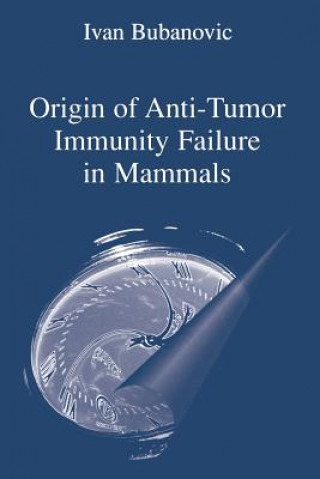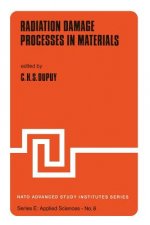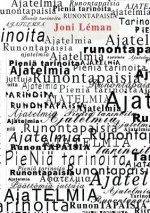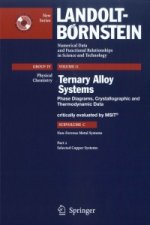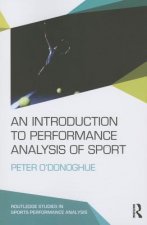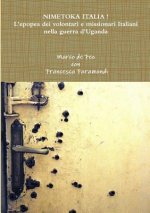
Doručení
Nákupní rádce





Nehodí se? Vůbec nevadí! U nás můžete do 30 dní vrátit
 Dárkový poukaz
V libovolné hodnotě
Dárkový poukaz
V libovolné hodnotě
S dárkovým poukazem nešlápnete vedle. Obdarovaný si za dárkový poukaz může vybrat cokoliv z naší nabídky.
Origin of Anti-Tumor Immunity Failure in Mammals
 Angličtina
Angličtina
 154 b
154 b
30 dní na vrácení zboží
Mohlo by vás také zajímat


The body of any animal can be viewed as a society or "ecosystem" whose individual members are cells, reproducing by cell division and organized into collaborative assemblies or tissues. In this "ecosystem", the cells are born, live and die under various forms of selection pressure such as territorial limitation, population size, source of nutrients provided, infectious agents, etc. The body is a highly organized society of cells whose main task is the maintenance of homeostasis of the whole organism. The failure of control mechanisms which make the cell the unit of society, marking the beginning of its "asocial" behaviour, is most frequently a malignant alteration. This process is not abrupt, nor is it based on a single event. It is, rather, a long-term process characterized mainly by mutation, competition and natural selection operating within the population of cells. The basic mechanisms controlling the cell sociability represent the first defence line against the altered cells, while the second line of defence is supposed to be made up of the immune system cells. Speaking in Darwinian terms, within the "ecosystem" of an organism, cells of the immune system operate as "predators" of the altered and mutated cells or cells infected by the intracellular parasites. §The biological phenomena whose mechanisms are, at present, explored and largely understood, certainly had their own evolution. Searching for the origin and details of the evolution of "advanced solutions" as well as selection pressures that might justify their emergence and existence, we often fail to see that many such phenomena are, in fact, co-evolutionary by-products of "evolutionary innovations". In other words, the evolutionary emergence of "advanced solutions" is sometimes, if not always, accompanied by certain by-products and by the co-evolution of compensatory mechanisms acting as a counterbalance to these. §An example of the evolution of "advanced solutions" is the evolution of adoptive immunity, and co-evolution of auto-immunity and alloimmunity. Alongside the diversification of the mechanisms of adoptive immunity, auto-immunity and alloimmunity gain attributes of the evolutionary by-products and become sources of selection pressure. To that effect, alloimmunity could be a source of very strong selection pressure in mammals, simply because it is directly connected with the reproductive efficacy. At the same time, new forms of selection pressure that are connected with adoptive immunity gave rise to new mechanisms controlling killer machinery of the immune system. Finally, the last in a line of by-products in the processes of evolutionary "modelling" and "re-modelling" of vertebrate immune systems can be regarded as the failure of anti-tumor immunity. §There is now much evidence that tumors can be immunogenic. Tumor cells very often express antigens in a form recognizable by the host immune system, but most frequently without consequences on tumor progression. This has been shown in many experimental models and different experimental conditions. Immediate mechanisms for the escape of tumors from the immune response are very similar to mechanisms for the escape of the fetoplacental unit (as allograft) from the maternal immune response. The similarity between these two mechanisms is so significant that any randomness must be banished. Mechanisms of anti-tumor immunity in mammals are probably substantially different from mechanisms of anti-tumor immunity in other classes of vertebrates. Moreover, the type of most frequent tumors in non-mammalian vertebrates is also significantly different. Finally, the incidence of malignant tumors in non-mammalian vertebrates is significantly lower than the incidence of malignant tumors in mammals. These facts indicate that the mammalian immune system during the anti-tumor immune response is tricked by the similarity between tumor cells and trophoblast or other placental cells. From this aspect, anti-tumor immunity failure
Informace o knize
 Angličtina
Angličtina
Kategorie




 Jak nakupovat
Jak nakupovat















